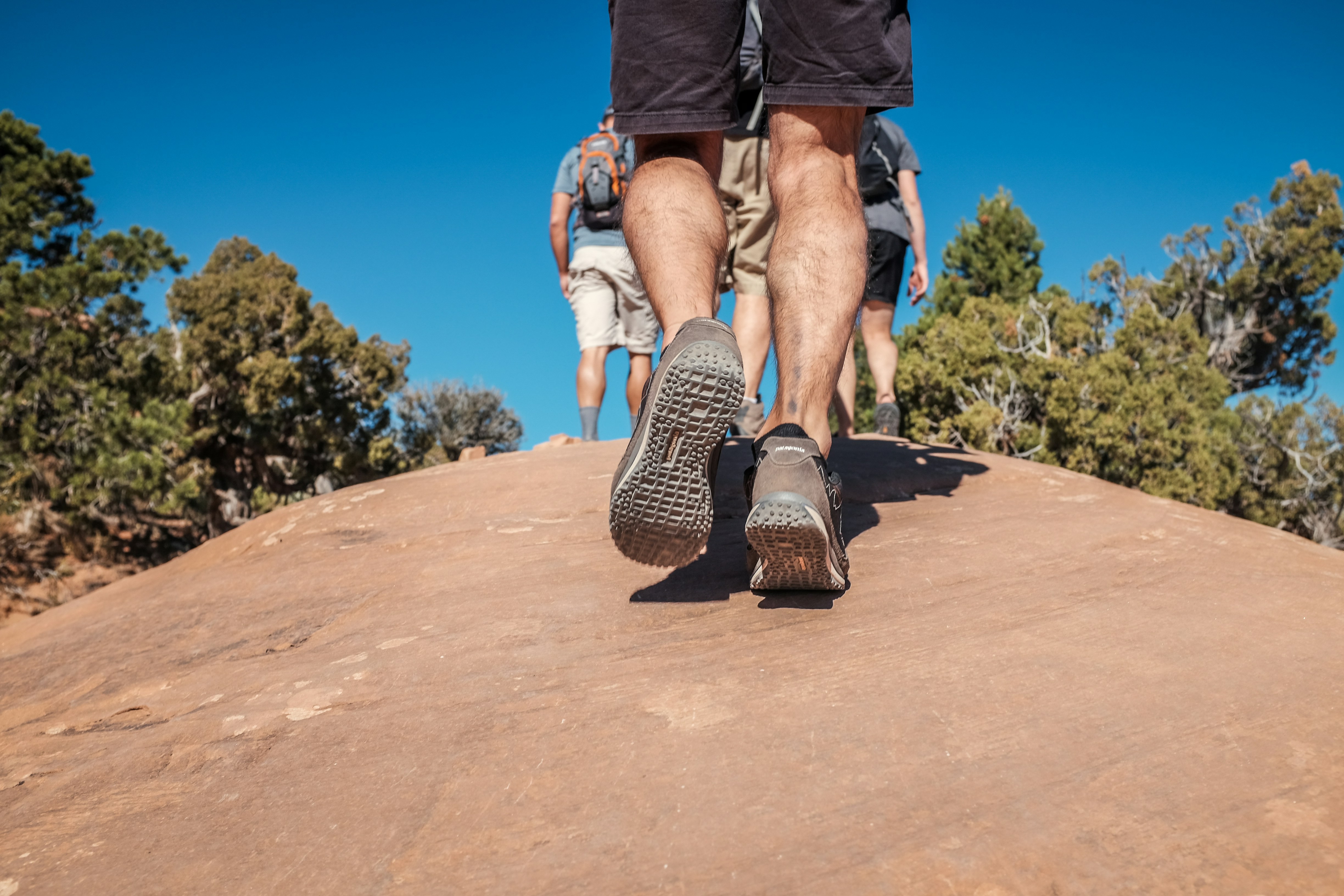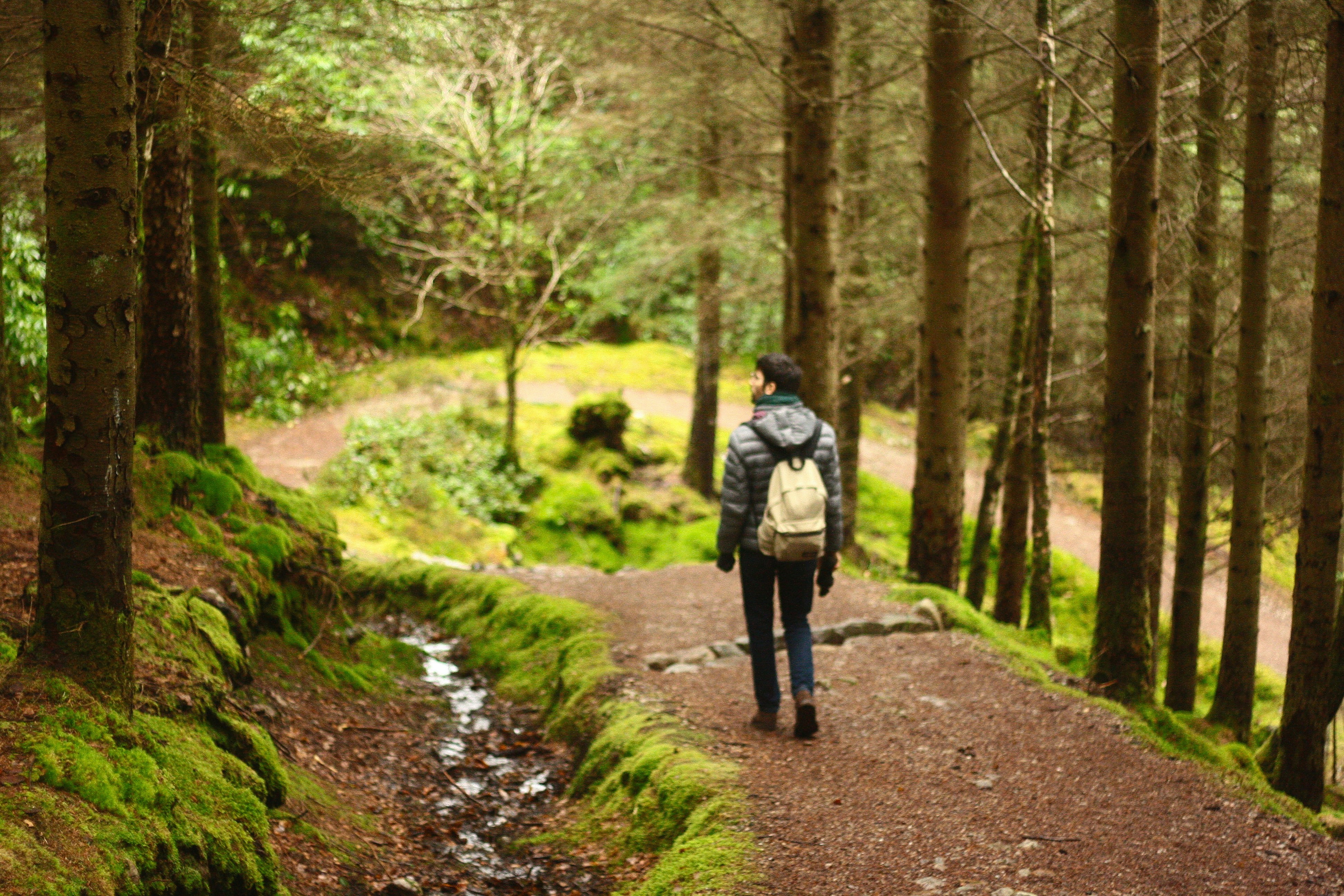9 Amazing Health Benefits of Walking in Nature, According to Science

We all know that walking is tremendously helpful for our health. There’s the classic goal of 10,000 steps a day, research that indicates regular walking improves your lifespan, and proof from a physical therapist on walking’s transformative power.
RELATED: 25 Ways a Daily Afternoon Walk Can Transform Your Life
There are many ways to walk, but what’s the most effective way? A growing body of research reveals that going on a walk by yourself in a natural setting – away from screens, urban environments, and social distractions – is the best way to walk.
If that sounds familiar, it is awfully close to the silent walking trend that took TikTok by storm. According to The New York Times, walking in silence is an ancient tradition with roots in mindfulness. What better way to do that than with nature?
It doesn’t have to be a full-blown hike, although that has its proven benefits too. Just going for a walk in any natural setting can positively impact you. Consider the growing body of evidence.
1
Nature walks improve your overall mood.

A 2019 study, published in Ecopsychology, found that spending time alone in nature significantly improved emotional well-being. Factors like being disconnected from others and fully immersing one’s self in a natural enviornent – especially in the chaotic, smartphone-driven world we live in – are huge in restoring and refreshing your mental health.
2
There are proven benefits for memory and attention.

A 2008 study focused specifically on the cognitive benefits of immersing yourself in nature. It found that participants who took a solo walk performed significantly better on memory and attention tasks than those who walked in urban environments.
3
The forest is particularly transformative.

Harvard Medicine goes a step further, specifying a “walk in the woods” as healing for our brain and a way to alleviate mental health issues. Part of the science points to “the aromatic compounds of the forest” as impacting us in a positive way.
RELATED: 8 Ways to Motivate Yourself to Take a Daily Walk
4
It’s not just a short-lived boost. It’s long term.

A 2022 study found the positive impact of nature walks isn’t just temporary, it extends for weeks. In fact, “a positive effect of nature walk was reported for up to three months.”
5
The natural environment doesn’t make a difference.

A 2013 study found that walking in any type of natural environment can positively impact your emotional wellbeing. Beach, forest, desert, whatever. Previous studies focused on one setting, but nature in general had an effect vs. being in an urban environment or indoors.
6
Relaxation is a key component.

UC Davis Health summarized National Library of Medicine studies as finding our bodies tend to relax in natural settings, improving our mental abilities and improving physical wellness.
7
Nature walking prevents depression and anxiety.

Mind, a mental health organization in England and wales, advocates “take a walk in green space” as its top tip for outdoor activities, and they noted that activities like hill walking can help to prevent depression and anxiety.
8
It develops the power of positivity.

A 2015 Stanford study determined that “nature reduces your tendency towards negative thought patterns.” This is because it can disrupt negative thought loops, resetting neural activity.
9
Mindfulness walks in nature improve self-esteem.

Some parks across the country specifically encourage the concept of “Mindfulness Walks.” On their website, the National Parks Service (NPS) boasts that “frequent exposure to nature reduces anxiety and depression” and coupling that with walking “improves mood, self-esteem, and relaxation,” tying everything together and making the pitch complete.